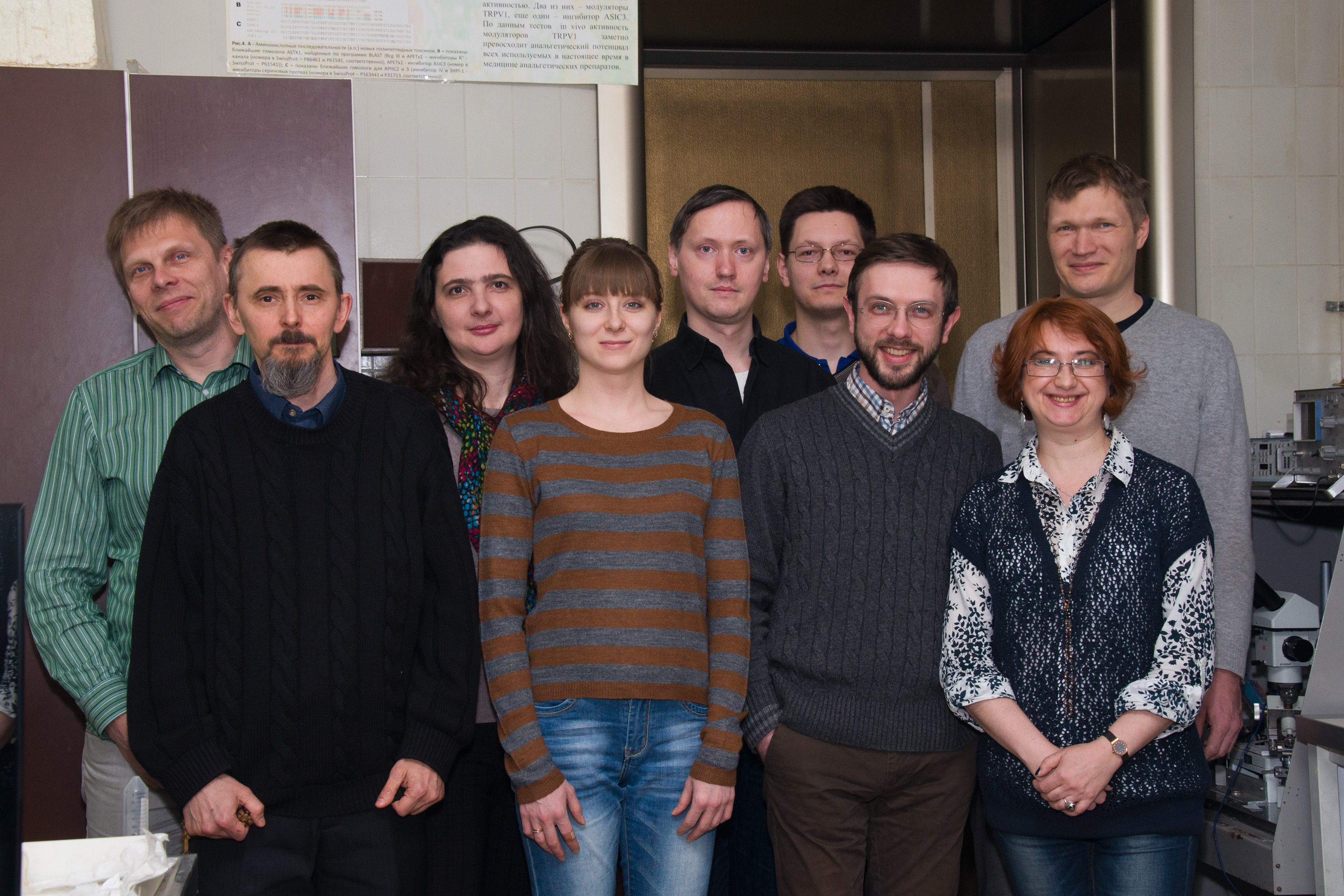Laboratory of neuroreceptors and neuroregulators
The laboratory conducts research of biologically active components from natural sources, interacting with a variety of targets in the cell membrane, as well as developing a common approach for the identification, isolation, structural and functional analysis and use as a thin tool which modulate the activity of the nerve cells membrane receptors. Laboratory research allows to be closer to an understanding the molecular mechanisms of the natural ligand specificity action and lays the foundation for the development of fundamentally new highly specific drugs and insecticides.
The laboratory cooperates with The Sechenov Institute of Evolutionary Physiology and Biochemistry RAS, (Magazanik L.G.), Federal Scientific Clinical Center of Physical-Chemical Medicine (Govorun V.M.), Sadykov Institute of Bioorganic Chemistry of the Academy of Sciences of Uzbekistan (Salikhov S.I.), Vavilov Institute of General Genetics RAS (Odintsova T.I., PhD), All-Russian Research Institute of Agricultural Biotechnology (prof. Babakov A.V.), University of Leuven, Belgium (Prof. Tytgat J.).
The laboratory has also performed studies in cooperation with Monsanto, Bayer, Zeneka, DuPont and other companies.
Young people are always welcome and get first class practical courses. Since its foundation, 23 PhD dissertations have been successfully defended in the Laboratory. High quality equipment, use of state-of-the-art methods, ongoing staff practical skill training, open-mindedness and ambitious scientific goals – this is what best describes the Laboratory today.
The Laboratory was founded in 1987 by Professor Eugene V. Grishin, member of the Russian Academy of Sciences. The laboratory has evolved into a world-leading scientific team studying natural neurotoxins and their neuronal receptors. The focus is on toxic components of animal venoms acting on different targets in the cell membrane. General approaches have been elaborated to active venom components identification, isolation, structure-function analyses and use as high-precision tools modulating neural membrane receptor activity.

- Search and investigation of polypeptide toxins and lower-modulated compounds that modulate activity of membrane receptors involved in processes of generation and pain signaling (Korolkova Y.V., PhD; Andreev Ya.A., PhD; Koshelev S.G., PhD)
- Studies of antimicrobial peptides from arthropods and plant defense peptides (Rogozhin E.A., PhD)
- Production of recombinant polypeptide toxins (Andreev Ya.A. PhD); study of DNA complex nanostructure (Danilevich V.N.).
- Development of agricultural crop protection methods to increase crop (Rogozhin E.)
- Development of methods for the production of recombinant polypeptide toxins in various heterologous expression systems (Yaroslav A. Andreev, Catherine E. Maleeva)
- Omixed technologies implementation in search and structural identification of biologically active compounds of complex multi-component mixtures (Mikov A.)
- Creation of cell lines for the analysis of ligand-receptor interactions (Julia Korol'kova, Yaroslav A. Andreev)
- Studying the DNA nanostructure complexes (Vasiliy Danilevich)
- a new class of toxins such as spiders argiope – polyamine blocker of glutamate receptors (Grishin et al., 1983)
- a family of high-selective neurotoxins from the venom of the Black Widow ("black widow") – latrotoxin (Kiyatkin et al., 1990)
- membrane-active peptides from the venom of ants and spiders (Kozlov et al., 2006)
- polypeptide toxins specific for sodium, potassium, calcium, proton-sensitive, TRPV1, TRPA1-channels.
- low-molecular weight biologically active compounds from medicinal plants with analgesic effect.
- In the study of neuronal receptors isolated and characterized for the first time all of the individual components of the mammalian sodium channel electro-excitability membranes.
 Loading...
Loading...Scientific projects
